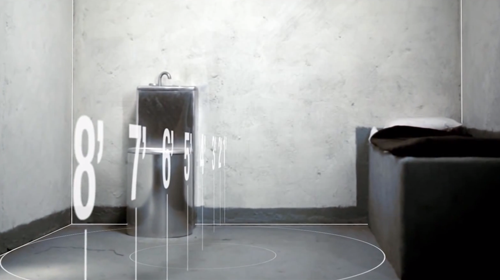By Amy Fettig, ACLU National Prison Project & Tanya Greene, Advocacy and Policy Counsel
"I developed techniques to survive. I've learned to play chess with other [kids] through a six-inch wall to keep myself occupied. But for others, it breaks them, makes them either violent or suicidal."
These are the words of Lino Silva, who had been incarcerated in a juvenile facility for over seven years when she wrote them. The "it" she mentions is solitary confinement, a practice that juvenile facilities routinely use on the approximately 70,000 kids in this country who are in their care on any given day.
For Lino, the conditions of solitary were so devastating she believes many of the kids subjected to it will not be able to "function anywhere other than adult prison." She writes:
Being in a room over 21 hours a day is like a waking nightmare, like you want to scream but you can't. You want to stretch your legs, walk for more than a few feet. You feel trapped. Life becomes distorted. You shower, eat, sleep, and defecate in the same tiny room. In the same small sink, you "shower," quench your thirst, wash your hands after using the toilet, and warm your cold dinner in a bag.
For children, a short time alone may sometimes be necessary to defuse a moment of crisis. But this does not give license to juvenile facilities to hide their practice of subjecting kids to prolonged isolation behind seemingly innocuous euphemisms like "time out," "room confinement," "restricted engagement," or a trip to the "reflection cottage." These terms mask the fact that hours of isolation can be extremely damaging to young people.
This morning, the ACLU released Alone and Afraid: Children Held in Solitary Confinement and Isolation in Juvenile Detention and Correctional Facilities.This paper highlights what we know: that solitary can cause extreme psychological, physical, and developmental harm. For adults, the effects can be persistent mental health problems or, worse, suicide. And for children, who are still developing and more vulnerable to irreparable harm, the risks of solitary are magnified – particularly for kids with disabilities or histories of trauma and abuse.
As our new report makes clear, juvenile facilities have been locking kids in physical and social isolation for days, weeks, and even months. Isolation cells often have no window or view of the world outside cell walls. While confined, children are regularly deprived of the services, programming, and other tools that they need for healthy growth, education, and development. Sometimes they are not even provided access to school books. Inside this cramped space, few things distinguish one hour, one day, one week, or one month, from the next.
Our priority should be protecting kids, helping them grow into productive and healthy adults. When children veer off course, we should rehabilitate them as quickly and as effectively as possible. We can get closer to this goal by ensuring that children across this country are no longer locked in solitary with little public oversight, knowledge, or legal limits—treatment that undermines healthy child development and, ultimately, community safety. It is time to abolish the solitary confinement of children and strictly limit and uniformly regulate isolation practices. To this end, state and federal lawmakers, local governments, and administrators of juvenile detention and correctional facilities should immediately embark on a review of the laws, policies, and practices that result in children being held in solitary confinement or prolonged isolation, with the goal of prohibiting all harmful practices.
For more solutions to the problem of juvenile solitary confinement, check out the entire report Alone and Afraid and our toolkit for activists No Child Left Alone.
This blog post originally appeared on ACLU’s National Blog of Rights on Wednesday, November 20th, 2013.
Date
Wednesday, November 20, 2013 - 12:08pmFeatured image
